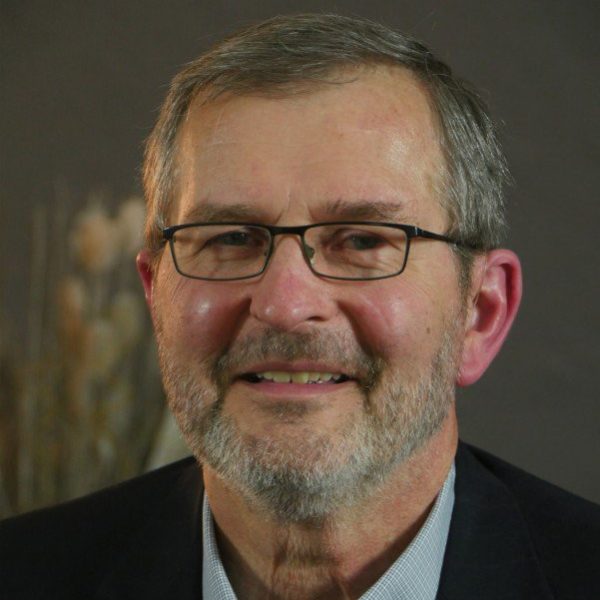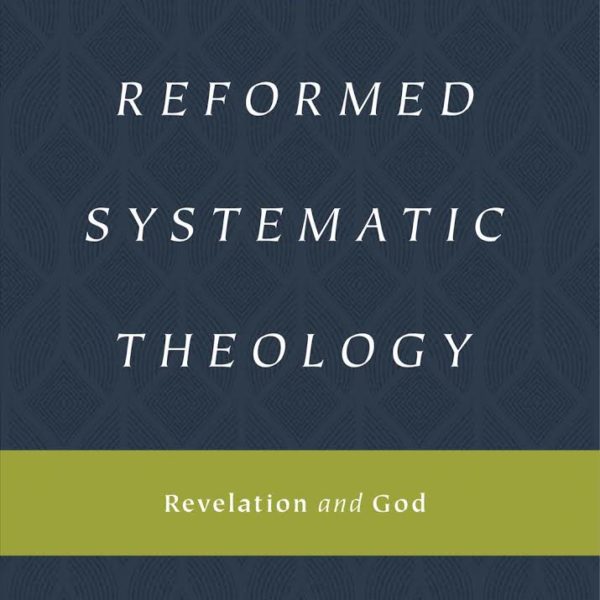Joel Beeke, born in Kalamazoo, MI, is a professor of systematic theology and homiletics at Puritan Reformed Theological Seminary and a pastor at Heritage Reformed Congregation. When not engaged in academic rigor he enjoys talking and walking with his wife, family nights, and playing with his grandchildren.
What is “Theology”? And Who Cares?
Interview with Joel Beeke
Loading...
You recently released a 1,312 page book called Reformed Systematic Theology. What is “Reformed Systematic Theology” and what compelled you to take up such a monumental task (knowing that this is actually the 1st of 4 total volumes to be released)?
I am collaborating with Paul Smalley to produce a systematic theology that is solidly biblical in its grounding, historically Reformed in its doctrine, richly experiential in its spirit, and intentionally practical in its application. Really, we are seeking to do what the Reformers and Puritans did in their time: theology from the Bible for the head, heart, and hands. However, this is not a restatement of Puritan theology (which I did with Mark Jones in A Puritan Theology) but a new systematic theology written for contemporary Christians.
What are the chief benefits for a person to read Theology, say a busy mother of 3, or a retired grandfather, or a young busy student?
The greatest benefit of reading theology is to know God and his ways better. Knowing God is the only thing worth boasting about; wealth, power, and intelligence are nothing compared to it. Furthermore, the knowledge of God is practical, for it shapes us to become like him as his image-bearers. The more we know the Word of God, the more we will enjoy boldness, humility, and hope. Finally, you cannot worship that which you do not know. Theology is fuel for doxology.
There are happy people out there, people who are Christians, and all-in-all things are pretty good in their lives: they are forgiven by Jesus, they may have a nice family, a great job, eat great food, etc. If a person like this has a great day, they wake up in a nice home to a loving spouse, they drink a great cup of coffee, they go swimming, they have a nice birthday dinner for their son, and they end the night watching a G rated movie. Why should this person read Theology? Does “If it ain’t broke, dont fix it” apply to them (in the sense that they are already “fixed” in that they are forgiven and right with God)?
The “good life” is a puff of vapor, for we live in a world of sin and misery and are rushing toward eternity. If you were on an airplane flying to another country where you would spend the rest of your life, which should your mind focus on: the snacks the waitress served you or the country you were about to enter? We are pilgrims in this world headed for our homeland. Or, if this world is our home and our heart is here, then we are enemies of God and will endure his wrath forever for serving and worshiping his creatures instead of the Creator.
What happens in our hearts when our minds learn something new about the Christian faith?
If we receive that knowledge with love, then it humbles us and moves us to love the Lord more and serve him better. However, if we receive that knowledge without love, then it puffs us up with foolish pride and makes us more judgmental. For the wisdom from above is pure and meek, being rooted in the fear of the Lord, but earthly wisdom is proud, contentious, and corrupting.
Why are truth, understanding, and clarity so satisfying to humans?
God created human beings in his image, which includes knowledge and wisdom. When we grow in those qualities, especially the knowledge and wisdom of God revealed in his Word, then we are becoming what we were made to be. Knowledge and wisdom also qualify and equip us to function as God’s servant-kings on earth, ruling over the other parts of creation for his glory.
You said the “most crucial element in writing out a full systematic Theology is to bring the doctrine and its implications into our own hearts and homes.” How does one bring the Theology they learn “into our own homes”?
Bringing theology into our homes begins with a sincere faith, for hypocrites parade their theology publicly while denying it privately by their actions in the home. From such a faith springs earnest prayer for our spouses and children, a crucial element in home religion because only God’s grace can make them faithful Christians. Christian parents lead their children in the faith by practicing regular family worship together, a brief daily discipline of reading the Word, praying, and singing. Finally, theology flourishes in a family that actively participates in a good local church, for we need the body of Christ.
What would you hope and pray that your own children, or children’s children, would see in this book and then take root in their own hearts?
I hope and pray that they will see the glory of God in Jesus Christ and respond by grace with strong faith, confident hope, and fervent love.
For you personally, what has been the most compelling or powerful aspect of the story of the Bible that you delight in, has come to you fresh, and resulted in you loving God more and being excited to be a part of God’s story?
I have been moved by Luke 22:31–32 where Jesus shows the ministry of His threefold office in meeting all of Simon Peter’s needs as a prophetical admonisher (v. 31), a priestly intercessor (v. 32a), and a kingly commissioner (v. 32b).
What is the “Gospel” and what practical implications does the Gospel make in my everyday life?
The gospel is the good news that the God who created all things has chosen not to condemn all mankind for our sins against him, but instead to send his Son, Jesus Christ, to redeem sinners from all nations. Christ accomplished redemption by living a sinless life and dying as the substitute for sinners. Christ rose from the dead and applies redemption in all who repent of sin and trust in him alone for salvation by the work of the Holy Spirit.
What is “sin” and what is so terrible about it when I do sin? And what is my motivation to not sin?
Sin is hatred toward God, expressed in unbelief toward his promises and rebellion against his laws. The evil of sin consists of the wrong we commit against the One who is supremely great and good. We are motivated not to sin by love for God and the fear of God, both of which arise from knowing God through Jesus Christ.
What is God’s end goal for this world, all humans of this world, and me personally? Where is He taking it and what does it look like for me to be a part of that goal, and how can I have a role and purpose in that goal, and find meaning, and value, and my joy in that goal?
God’s ultimate goal in creation is to manifest his glory in the salvation of his elect through judgment against sin. He displays this most at the cross of Jesus Christ, where glory, salvation, and judgment meet. You are a part of that goal, whether by your salvation by grace through faith in Christ and everlasting enjoyment of God as his renewed image-bearer, or by your damnation by justice on account of your sins. The believer’s purpose and meaning in life revolves around doing God’s will by his grace, for his glory, in the good of his creatures.
How can I, as a Christian who believes the Gospel and affirms orthodoxy, be compelled to genuinely desire God and the kingdom of God enough to become a true disciple, one who is willing to consider all things loss in comparison with knowing and loving Jesus?
All true Christians and believers in the gospel are disciples of Christ who desire God and seek his kingdom above all else. Yet all God’s children need to grow more in this holy desire and practice. They do this by listening to preaching that informs the mind and stirs the heart with God’s Word, meditating on that Word, exercising faith and obedience to the Word in the midst of inner conflicts and outer persecution, cultivating friendships with other godly people in the church, and continually looking to Jesus Christ as he is clothed in the gospel.
As a Christian, at the end of a long day (when I have done what I ought not to have done – and not done what I ought to have done) what are God’s thoughts of me when I lay down my head at night and fall asleep?
God views the regenerate as his justified and adopted child. The Lord delights in your obedience, imperfect though it be, because he sees you as one with Christ, the Righteous One. God forgives your disobedience, though displeasing to him, because he sees you as one with Christ, who is the propitiation of our sins. He disciplines his children to make them share in his holiness, but not to condemn them.
What is God’s mission given to us and how do I fulfill it without it becoming a feeling of another thing I have to do for God? And based upon that, What is needed at the personal, and church level to shape culture and to be on strategic mission?
A strategic view of the church’s work remembers the centrality of the Great Commandments (“Love the Lord thy God with all thy heart, and love thy neighbor as thyself”) and the Great Commission (“Make disciples of all nations”). Love demands costly action but must begin in a heart imprinted with the gospel of Jesus Christ. Culture is all that people think, say, and do that flows from the heart of God’s image-bearers. Where you fit into that mission and how you contribute to culture depends on your personal calling and the sphere of responsibility that God has given to you—it varies from Christian to Christian.
For those who read this interview and get pricked of mind and heart; what can I do today, right now at this very moment (and beyond), that can result in the story of the Bible take root in my own heart and shaping me as it has you?
“Believe on the Lord Jesus Christ, and thou shalt be saved” (Acts 16:31). “As ye have therefore received Christ Jesus the Lord, so walk ye in him” (Col. 2:6).
SHARE THIS ARTICLE
Loading...
GIVEAWAY
A few options to win this brick of a book: 1. Comment on our interview with Dr Beeke here on our site 2. Like The Laymens Lounge and share on Facebook our interview with Dr Beeke 3. Like The Laymens Lounge and tag a friend on Instagram
Loading...
Read more in these categories
Loading...
Today we are joined by Stephen Brett Eccher to discuss the firebrand of fidelity that is Ulrich Zwingli in connection with Eccher’s new book “Zwingli the Pastor: A Life in Conflict” from Lexham Press.
Biblical Theology is a reference book covering every book in the Bible, but it can also be read devotionally, as I did – in fact, it took me nine months to read. As C. S. Lewis says in his wonderful introduction to Athanasius' On The Incarnation, doctrinal books are often “more helpful...
This Earthly Life Matters
Was Jesus merely an “emergency measure”? Did Kuyper take the creation and culture far enough? Is the goal of life to “get saved” or is it to get saved unto the end that God intended all along? Do we overemphasize Jesus at the expense of the Trinity? All this, and...





I love his point that “you cannot worship that which you do not know. Theology is fuel for doxology.” I believe my (Millennial) generation of Christians is starting to wake up to this fact.
“All true Christians and believers in the gospel are disciples of Christ who desire God and seek his kingdom above all else”
The implications of this statement are powerful! Thank you for speaking so boldly about this!
What a blessing to have this man ministering grace through his teaching and writing. I pray all followers of the Christ will become the theologian they should be!
Beeke is full of wisdom and biblical sharpness.
Beeke is a fine theologian with an RC Sproul approach to his writings. Not only will his Systematic Theology book help thousands in seminaries, but also to people like me who are diligent reformed Christians looking for tools to better ourselves in the arena of reformed apologetics. Great interview! Referred here by Facebook Reformed Library group! ❤
It is of utmost importance that we, as the church, know God. Theology is the window with which we view God through, some are dirty and cracked, some are cleaner. Thank God for men like beeke who are dedicated to helping navigate a good theology.
“…..exercising faith and obedience to the Word in the midst of inner conflicts…” When I read this in the answer to the 12th question, I was comforted in a weird way. I just thought this is so me!! And there are Christians. I know God hates sin and that He is displeased with the regenerate sinner’s sin, (sometimes I doubt I am- actually many a time). But It hurts to know I’ve displeased God, especially in my thoughts and also deeds.
I loved the idea of the 6 questions. Thank you very much 😊